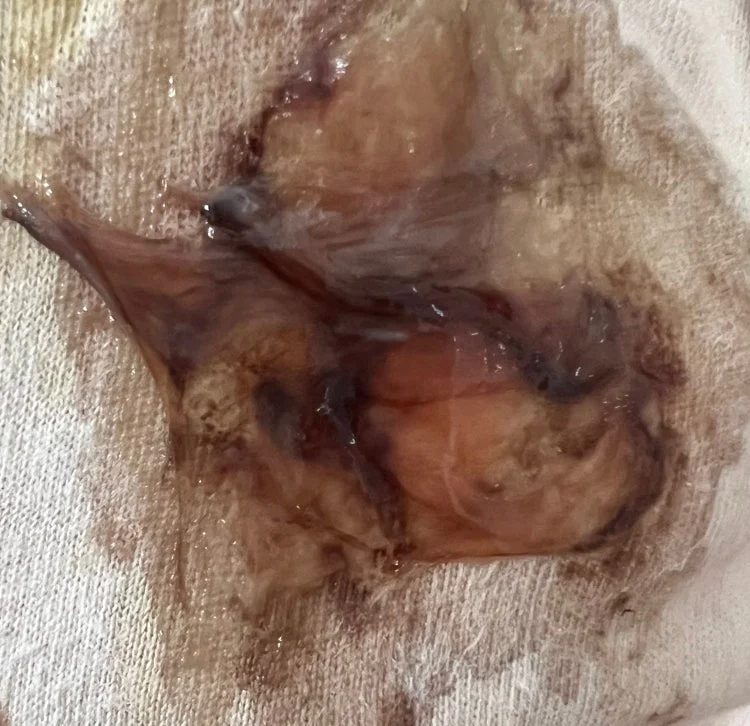Q
2025-04-03 17:48:17It's been over a week since my period ended, but I'm noticing discharge mixed with blood (warning: photo attached).
I've taken antibiotics quite a few times this year, but this hasn't happened before, and it's making me nervous. Could it just be leftover period blood, or is it spotting?

A
Dr.s DiagnosisGiven the image and your history of antibiotic use, here's a breakdown of potential causes and what you should consider:
Possible Causes:
1. Spotting: Spotting is light bleeding outside your regular period. Since it's been over a week since your period, this is a strong possibility.
2. Hormonal Imbalance: Antibiotics can sometimes indirectly affect hormone levels, potentially causing irregular bleeding.
3. Infection: The discharge combined with blood could indicate a vaginal infection. Antibiotics can disrupt the natural vaginal flora, making you more susceptible to yeast infections (candidiasis) or bacterial vaginosis (BV). BV can cause a thin, grayish-white discharge with a fishy odor, sometimes mixed with blood.
4. Cervical Polyps: These are benign growths on the cervix that can bleed, especially after intercourse.
5. Retained Products of Conception: Although less likely if you aren't pregnant, this should be considered
6. Other Uterine Problems: Less common, but uterine fibroids or other growths can sometimes cause abnormal bleeding.
Recommendations:
* Monitor: Keep track of the amount, color, and consistency of the discharge. Note any associated symptoms like itching, odor, or pain.
* Probiotics: Since you've taken antibiotics, consider taking oral probiotics or using vaginal probiotics to help restore your vaginal flora. Choose a brand specifically formulated for vaginal health.
* Hygiene: Avoid douching, as it disrupts the vaginal flora. Use gentle, unscented soap to wash the external area.
* When to Seek Medical Advice: If the bleeding becomes heavier (soaking a pad in an hour), you develop a fever, severe abdominal pain, or the discharge has a foul odor, seek medical attention immediately.
It is important to consult a doctor, especially with this type of image.